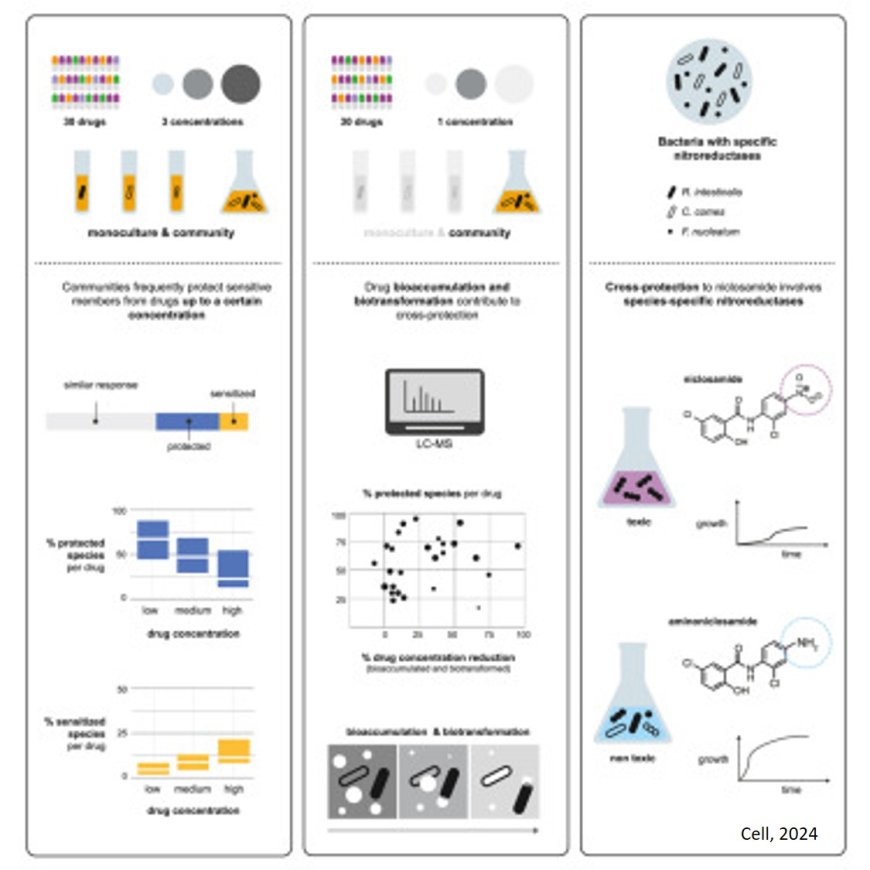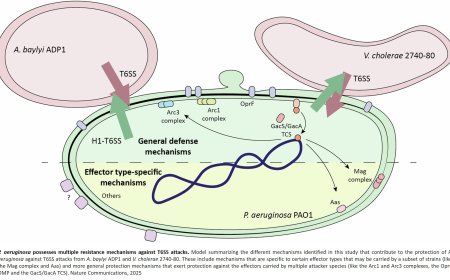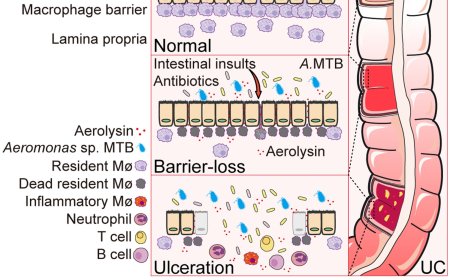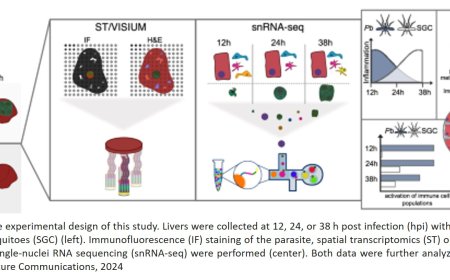Gut microbiome communities’ resilience to drugs

Many human medications can directly inhibit the growth and alter the function of the bacteria that constitute our gut microbiome. Researchers have now discovered that this effect is reduced when bacteria form communities.
In a first-of-its-kind study, researchers compared a large number of drug-microbiome interactions between bacteria grown in isolation and those part of a complex microbial community. Their findings were recently published in the journal Cell.
For their study, the team investigated how 30 different drugs (including those targeting infectious or noninfectious diseases) affect 32 different bacterial species. These 32 species were chosen as representative of the human gut microbiome based on data available across five continents.
They found that when together, certain drug-resistant bacteria display communal behaviours that protect other bacteria that are sensitive to drugs. This 'cross-protection' behaviour allows such sensitive bacteria to grow normally when in a community in the presence of drugs that would have killed them if they were isolated.
“We were not expecting so much resilience,” said a co-first author of the study. “It was very surprising to see that in up to half of the cases where a bacterial species was affected by the drug when grown alone, it remained unaffected in the community.”
The researchers then dug deeper into the molecular mechanisms that underlie this cross-protection. “The bacteria help each other by taking up or breaking down the drugs,” explained another co-first author of the study. "These strategies are called bioaccumulation and biotransformation respectively".
“These findings show that gut bacteria have a larger potential to transform and accumulate medicinal drugs than previously thought,” said one of the study collaborators.
However, there is also a limit to this community strength. The researchers saw that high drug concentrations cause microbiome communities to collapse and the cross-protection strategies to be replaced by 'cross-sensitisation'. In cross-sensitisation, bacteria which would normally be resistant to certain drugs become sensitive to them when in a community – the opposite of what the authors saw happening at lower drug concentrations.
“This means that the community composition stays robust at low drug concentrations, as individual community members can protect sensitive species," said the senior author of the study. "But, when the drug concentration increases, the situation reverses. Not only do more species become sensitive to the drug and the capacity for cross-protection drops, but also negative interactions emerge, which sensitise further community members. We are interested in understanding the nature of these cross-sensitisation mechanisms in the future.”
As a forward-looking experiment, authors also used this new knowledge of cross-protection interactions to assemble synthetic communities that could keep their composition intact upon drug treatment.













